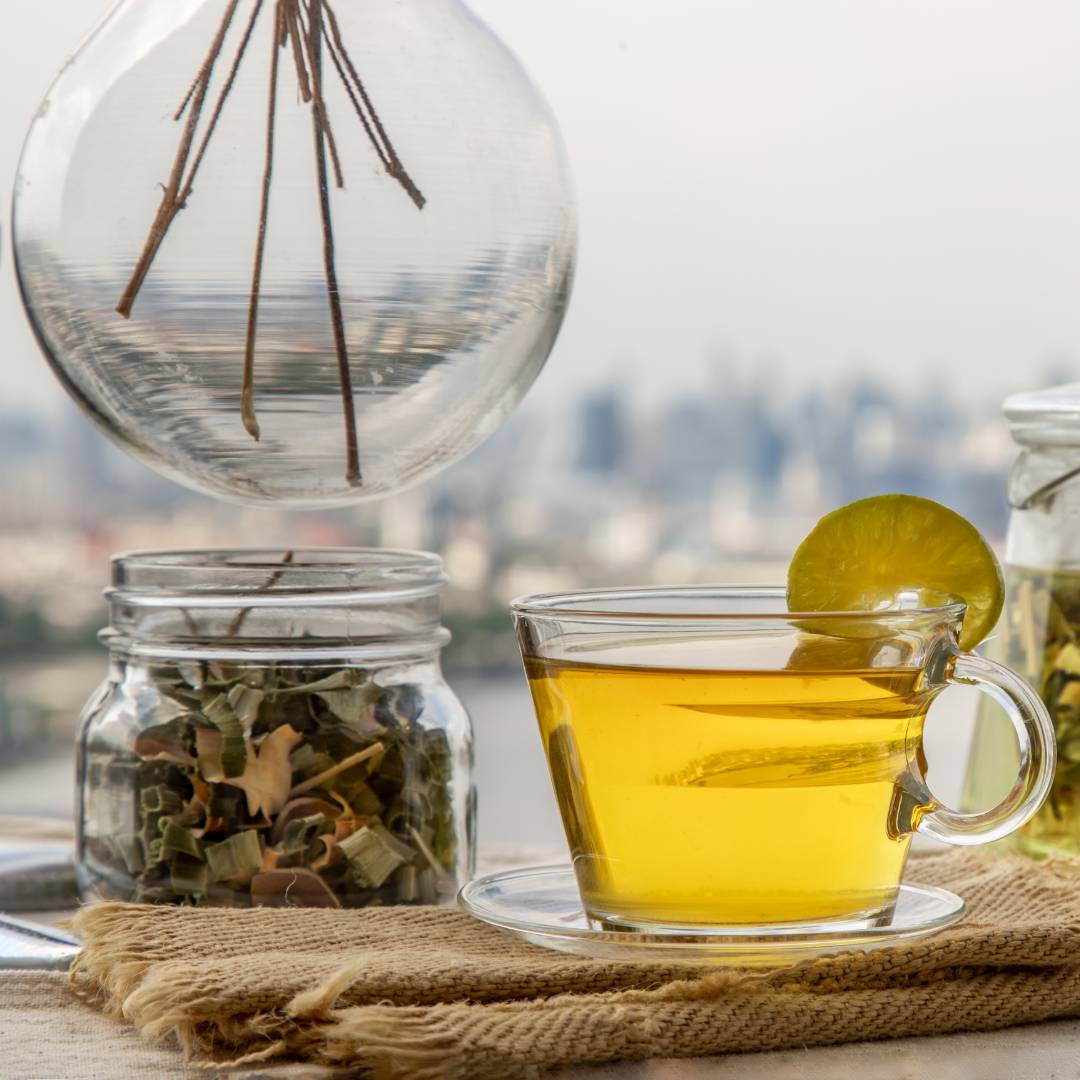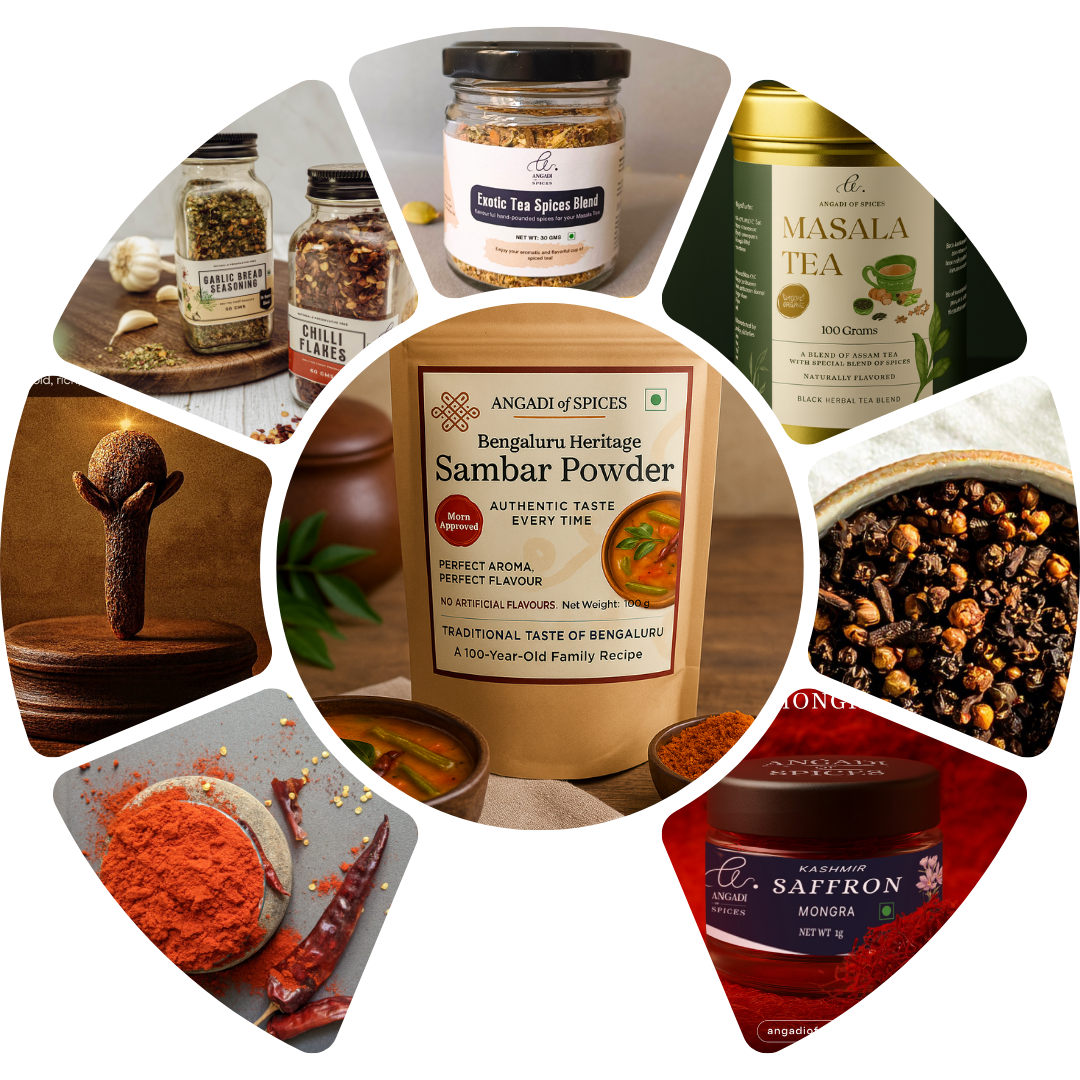Lemongrass Tea Benefits, Flavour, and Brewing Guide: Everything You Need to Know
Introduction to Lemongrass Tea
Lemongrass tea, a refreshing and aromatic herbal infusion, is made from the leaves and stalks of the lemongrass plant (Cymbopogon citratus). Known for its citrusy flavour and numerous health benefits, lemongrass tea is a popular beverage in many parts of the world, especially in Southeast Asia. This tea is not only delicious but also revered for its therapeutic properties, making it a staple in both traditional and modern wellness practices.

Health Benefits
Aids Digestion: Lemongrass tea is well-known for its digestive benefits. It can help relieve bloating, indigestion, and stomach cramps by soothing the digestive tract and promoting healthy digestion.
Supports Weight Loss: Lemongrass tea has diuretic properties, which can help in flushing out excess fluids and reducing water retention. Its ability to boost metabolism also makes it a supportive addition to a weight management routine.
Rich in Antioxidants: Packed with antioxidants like flavonoids and phenolic compounds, lemongrass tea helps combat oxidative stress and protect the body from free radical damage. These antioxidants contribute to overall health and may reduce the risk of chronic diseases.
Reduces Inflammation: Lemongrass has anti-inflammatory properties, which can help reduce inflammation in the body. This makes it beneficial for conditions such as arthritis and inflammatory bowel disease.
Boosts Immunity: Lemongrass tea is rich in vitamins and minerals, including vitamin C, which can help strengthen the immune system. Regular consumption can aid in warding off common colds and infections.
Promotes Relaxation and Reduces Stress: The calming properties of lemongrass tea make it an excellent choice for reducing stress and anxiety. The tea’s mild sedative effects can also promote better sleep, making it an ideal beverage to enjoy before bedtime.
Detoxifies the Body: Lemongrass tea acts as a natural detoxifier, helping to cleanse the liver, kidneys, and bladder. Its diuretic effect promotes the elimination of toxins from the body, contributing to overall health and well-being.
Culinary Advantages
Citrusy Flavour: Lemongrass tea has a fresh, citrusy flavour with subtle herbal undertones. Its bright taste makes it a versatile ingredient in various culinary applications, from hot teas to cold brews and even as a flavouring in soups and desserts.
Aromatic and Refreshing: The natural aroma of lemongrass adds an invigorating scent to the tea, enhancing the drinking experience and providing a sense of refreshment with every sip.
Versatile Ingredient: Lemongrass tea can be enjoyed on its own or blended with other herbs and spices like ginger, mint, or basil to create unique and flavourful combinations.
Additional Advantages
Caffeine-Free: Lemongrass tea is naturally caffeine-free, making it a perfect choice for those who want to enjoy a soothing cup of tea without the stimulating effects of caffeine.
Low Calorie: Lemongrass tea is low in calories, making it a healthy beverage option for those looking to maintain or lose weight while enjoying a flavourful drink.
Flavour Profile
Lemongrass tea offers a bright and zesty flavour with a refreshing citrus aroma. The taste is slightly sweet with a hint of lemon, balanced by mild herbal notes. This tea is perfect for those who enjoy light, uplifting beverages with a natural citrus twist.
Brewing Instructions

Ingredients:
- 1-2 tablespoons fresh or dried lemongrass (or 1 lemongrass tea bag)
- 2 cups water
- Optional: honey, lemon slices, or fresh mint leaves
Instructions:
- Boil Water: Heat 2 cups of water until it reaches a rolling boil.
- Prepare Lemongrass: If using fresh lemongrass, chop the stalks into small pieces. If using dried lemongrass or a tea bag, it’s ready to use as is.
- Add Lemongrass: Place the fresh or dried lemongrass into a teapot or cup.
- Pour Water Over Lemongrass: Pour the boiling water over the lemongrass and allow it to steep.
- Steep: Let the tea steep for 5-10 minutes, depending on your preferred strength. A longer steeping time will result in a stronger flavour.
- Strain: If using fresh or dried lemongrass, strain the tea into a cup using a fine mesh strainer. Remove the tea bag if that’s what you used.
- Add Optional Ingredients: Sweeten the tea with honey, or add a slice of lemon or fresh mint leaves for added flavour. Stir well to combine.
- Serve: Enjoy your lemongrass tea hot, or let it cool and serve over ice for a refreshing cold drink.
Tips:
- Adjust Strength: If you prefer a stronger or milder tea, adjust the amount of lemongrass or the steeping time accordingly.
- Blends: Experiment with blending lemongrass with other herbs like ginger or mint for a unique and flavorful tea experience.
Varieties and Blends
Lemongrass tea can be enjoyed on its own or combined with other ingredients for a delightful blend. Popular combinations include lemongrass with ginger, for a spicy and warming tea, or with mint, for a refreshing and cooling effect. Lemongrass also pairs well with green tea or black tea for a more robust and complex flavour profile.
Cultural Significance
Lemongrass is a staple in traditional medicine and culinary practices across Southeast Asia, where it is valued for its health benefits and refreshing flavour. In countries like Thailand and Vietnam, lemongrass is commonly used in teas, soups, and curries, both for its taste and its medicinal properties. Lemongrass tea has also gained popularity in other parts of the world as a soothing and healthful beverage.
Potential Side Effects
While lemongrass tea is generally safe for most people, there are a few considerations:
- Allergic Reactions: Some individuals may be allergic to lemongrass. Discontinue use if you experience any adverse reactions.
- Pregnancy and Breastfeeding: Pregnant or breastfeeding women should consult with their healthcare provider before consuming lemongrass tea, as its effects during pregnancy are not fully understood.
- Interactions with Medications: Lemongrass may interact with certain medications, particularly those that affect blood pressure. It’s advisable to consult with a healthcare provider if you are on medication.
Storage Tips
To maintain the freshness and potency of lemongrass tea, store fresh or dried lemongrass in an airtight container in a cool, dry place, away from direct sunlight. Proper storage will help preserve the tea’s flavour and aromatic qualities, ensuring a delightful cup every time.
Lemongrass tea is a bright and invigorating beverage that offers a range of health benefits. Its citrusy flavour and soothing properties make it a versatile and enjoyable tea, perfect for any time of day. Whether you’re looking to unwind, support your digestion, or simply enjoy a refreshing drink, lemongrass tea is a wonderful choice that brings the taste of the tropics into your cup.




